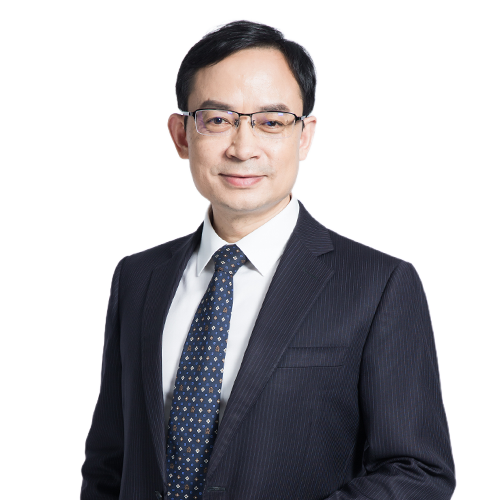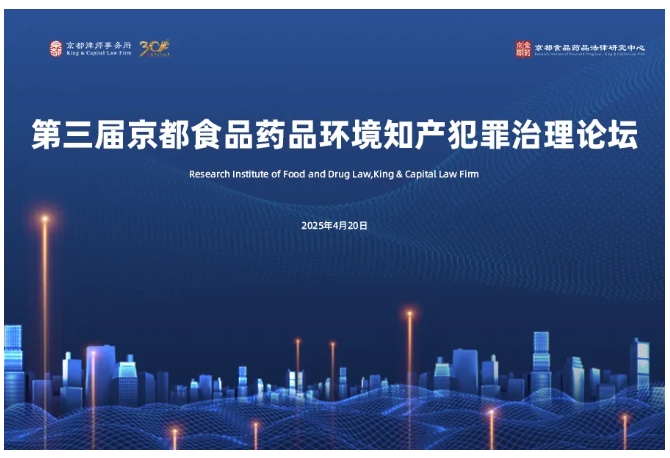
Food and drug safety concerns everyone's life and health; ecological and environmental governance carries the sustainable development of mankind; and the protection of intellectual property rights is the key guarantee for innovation-driven development.On April 20, the Third Forum on the Governance of Food, Drug, Environmental and Intellectual Property Crimes, hosted by the Beijing Municipal King&Capital Law Firm and the King&Capital Food and Drug Law Research Center, was grandly held in Beijing. Against the background that food and drug safety, ecological environment and intellectual property protection are increasingly becoming the focus of social attention, the forum focused on the topic of “Food, Drug, Environment and Intellectual Property Crime Governance”, aiming to further promote the improvement of relevant laws and regulations through the exchange of experience and collision of ideas, to promote the governance of the source and the rule of law, and to form a governance pattern in which the whole society participates in the process. The pattern of governance is formed with the joint participation of the whole society.
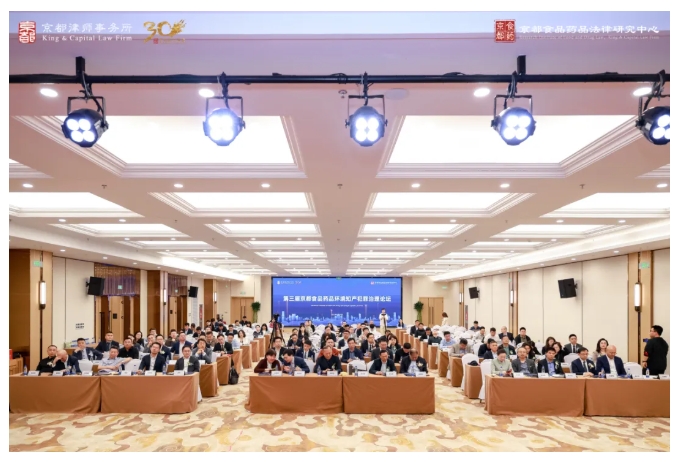
Li Chunlei, Professor of the People's Public Security University of China
Li Chunlei, Professor of the People's Public Security University of China; Wang Canfa, Professor of the China University of Political Science and Law; Gao Guijun, Professor of the National Judges College; Liu Yunyun, Professor of the Beijing Technology and Business University; Yuan Bin, Professor of the Beijing Normal University; Su Huanpeng, Professor of the University of International Business and Economics; Li Liangqiu, Executive Vice-President of China Nutritional and Health Food Association; Zhang Wenhu, Senior Vice-President of the China Association of Over-the-Counter Medicines; Zeng Wenyuan, Associate Professor of the People's Public Security University of China; Sun Shuguang, Master of Science and Technology at the People's Public Security University of China Public Security University, Mr. Sun Shuguang, Mr. Zhu Yonghui, Director of Beijing King&Capital Law Firm, Mr. Chu Changzhi, CEO of King&Capital Law Firm, and other experts and scholars were present.
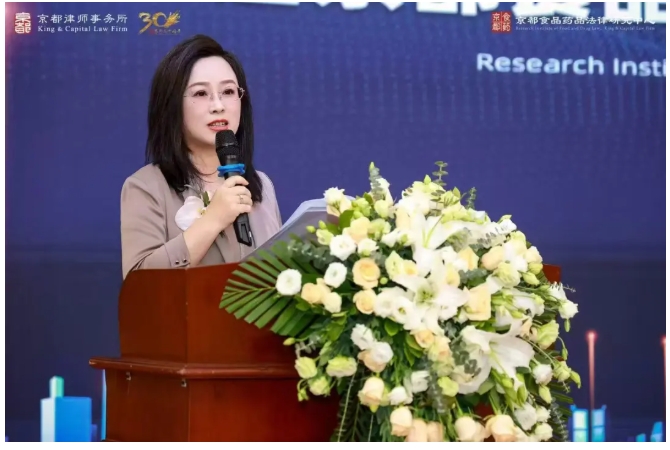
Zhang Sijia
Deputy Director of King&Capital Food and Drug Law Research Center, Sijia Zhang, Lv Yan, Wang Zhiqiang, and Zhang Yongfu hosted the event successively.
King&Capital Food and Drug Center
A number of legal monographs will be published for the benefit of the industry.
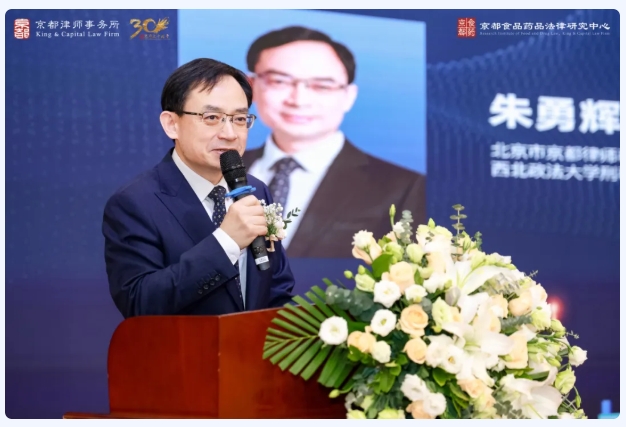
Zhu Yonghui
Zhu Yonghui, Director of King&Capital Law Firm, introduced in his speech that the Kyoto Food and Drug Law Research Center was established on April 20, 2024, which is the first research institution in China established by a law firm focusing exclusively on food, drug, environmental and intellectual property crimes, and since its establishment, it has cooperated with the People's University of Public Security of China, the China University of Political Science and Law, the China University of Commerce and Industry and other colleges and universities. He expects the development of the center to bring more research results and more benefits for the progress of the society.
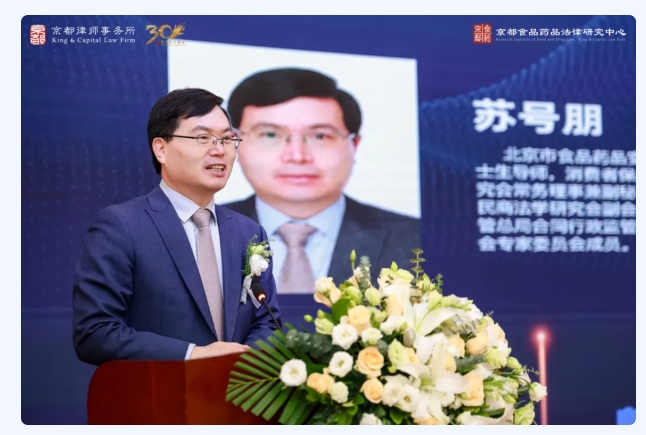
Mr. Su
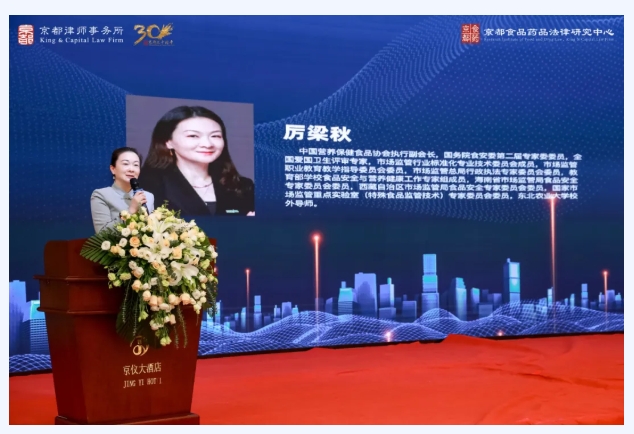
Li Liangqiu
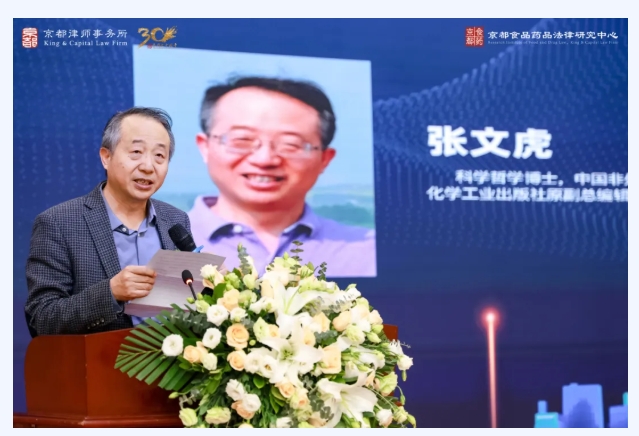
Zhang Wenhu
Su Hupeng, president of Beijing Food and Drug Safety and Rule of Law Research Association, Li Liangqiu, executive vice president of China Nutrition and Health Food Association, and Zhang Wenhu, senior vice president of China Association of Over-the-Counter Drugs, mentioned in their speeches that food safety issues not only affect everyone's life and health, but also affect economic development and social stability. Experts said that with the complexity and globalization of the whole industrial chain, the problems of safety and crime are extended in all directions, including the production side, the distribution side, the consumption side, and the management side, during which the new crimes pose a serious challenge to the traditional supervision, which requires deepening cooperation among the legal, scientific and technological, and business sectors to form a long-term joint mechanism in the areas of counterfeiting and rights protection, standard setting, and public popularization of science and technology, and to build a smarter and more resilient This will build a smarter and more resilient food and drug safety governance system to escort the construction of “Healthy China”.
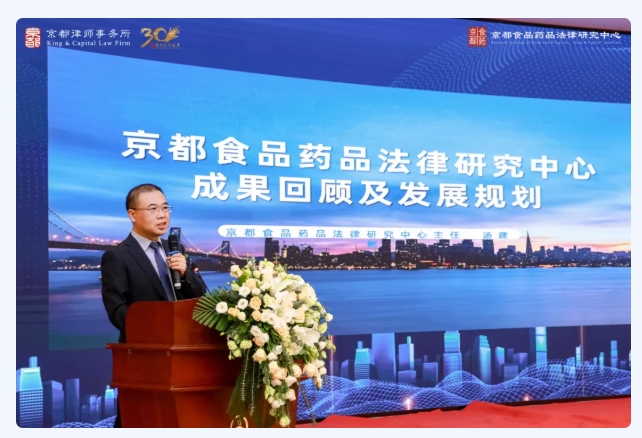
Tang Jianbin
Tang Jianbin, director of King&Capital Food and Drug Law Research Center, mentioned in the summary of the center's work results that in the past year, King&Capital Food and Drug Center set up Yinchuan Branch Center, and at the same time, with the People's University of Public Security of China, Beijing University of Technology and Business, as well as some of the law firms to jointly conduct practical and scientific research, focusing on the incident of loading oil in coal tanker trucks, punitive damages for food and drug and other topics, such as tracking of hot events, analysis, and sharing of food and drug case studies. The Center has conducted hot events tracking, professional articles and case sharing on topics such as coal tanker oil loading incident and food and drug punitive damages.
He said that in the future, the Center for Food and Drugs will maintain the equal importance of specialized small forums and comprehensive large forums, and focus on the research on the four major sections of food crimes and administrative penalties, drug crimes and administrative penalties, as well as environmental and intellectual property rights by integrating the researchers and the team, and on the basis of the existing two bibliographies of “Handbook of Case Handling for Food and Drugs Crimes” and “Theoretical Explorations and Practical Essentials of Environmental Crimes”, it will further
Signing between Food Safety Law Research Center of Beijing Technology and Business University and King&Capital Food and Drug Law Research Center
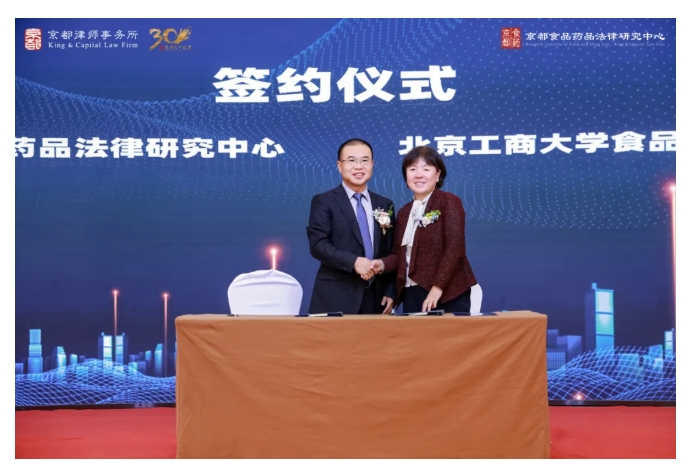
During the meeting, the Food Safety Law Research Center of Beijing Technology and Business University and King&Capital Food and Drug Law Research Center signed a strategic agreement. Both parties promise to devote themselves to forming influential research reports in the industry, enhancing the business capacity of both partners, and promoting the development of the theory and practice of the rule of law on food and drug safety in China.
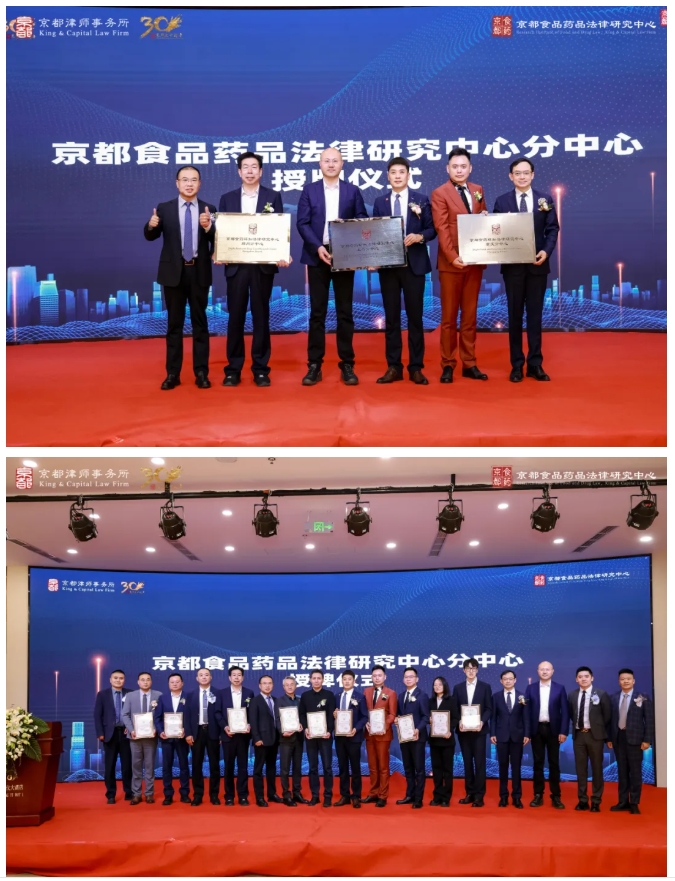
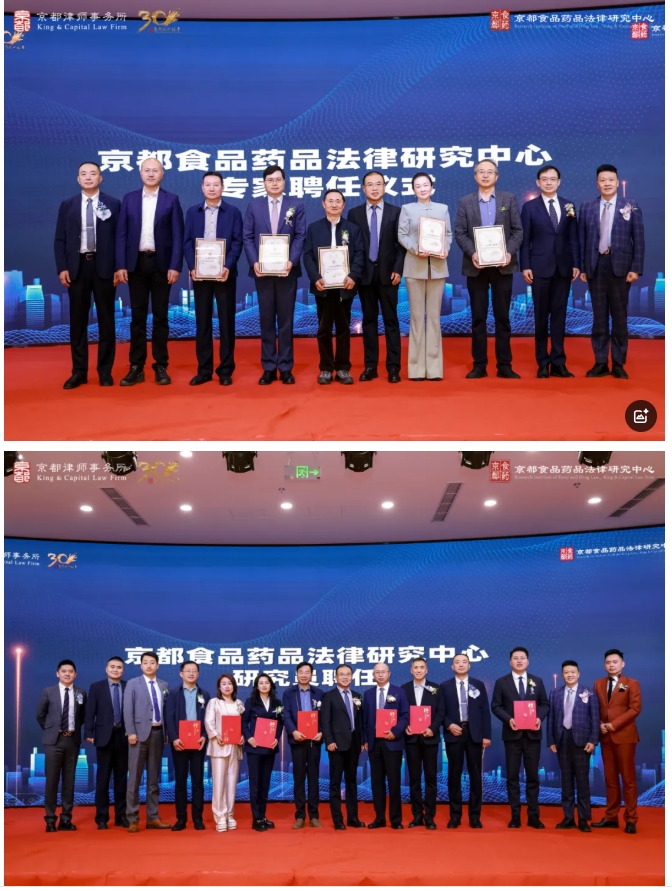
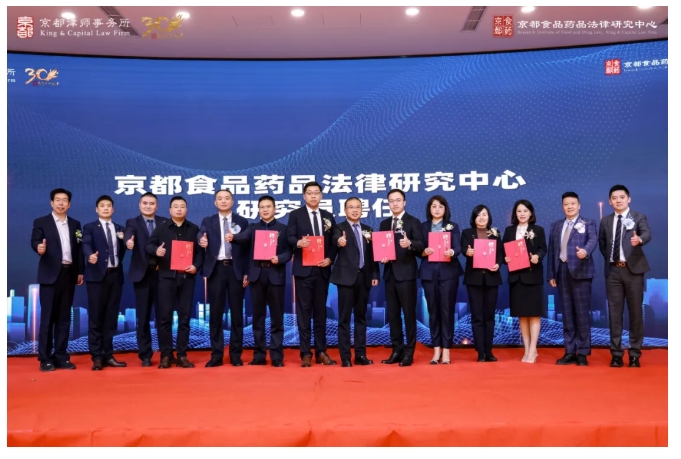
At the same time, King&Capital Food and Drug Law Research Center Chongqing Sub-center, Shanghai Sub-center and Zhengzhou Sub-center were announced to be established, and lawyers Wen Wu, Lu Xianghui and Wang Meiwen were appointed as the directors of the sub-centers respectively. China University of Political Science and Law Professor Wang Canfa and other 5 experts and scholars, 14 lawyers and scholars to become the center of expert advisers and researchers.
Participating experts and scholars to discuss on the ring of food and medicine know the problem
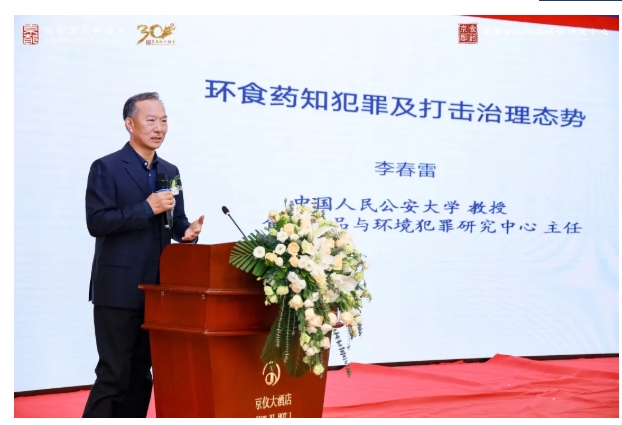
Li Chunlei
“The majority of joint crimes, which is a characteristic embodied in the ring food and drug know, upstream and downstream, cross-regional, online and offline cooperation of the crime is particularly high.” Li Chunlei, professor, doctoral supervisor and director of the Food, Drug and Environmental Crime Research Center of the People's Public Security University of China, said in his keynote speech titled “Ring Food, Drug and Knowledge Crimes and Crackdown on Governance Dynamics,” that particular attention should be paid to the completion of the infringement crimes through the deep integration of e-commerce platforms and social media, and that these counterfeit merchants existed in the form of order-based production, which was carried out to reduce inventory and circumvent crackdowns by reducing inventory, and separating the goods from their labels and transporting the goods with them at the time of execution. Together with the prominent cross-border situation, which enhances the difficulty of the public security crackdown, “the industry needs collaborative governance and multi-party participation, which new criminal means, as a professional lawyer should also pay attention to.”
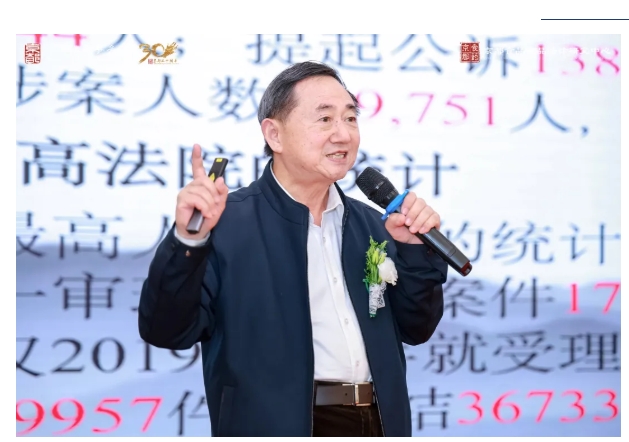
Wang Canfa
Wang Canfa, professor and doctoral supervisor of China University of Political Science and Law, and director of the Supervision Public Interest Litigation Research Base of China University of Political Science and Law, mentioned in his keynote speech on “Key Points of Environmental Crimes Defense” that there is a phenomenon of expanding the sanction of environmental crimes, and that special attention should be paid to defending the innocence of those who are passively involved in and who are simply unlikely to benefit from the illegal acts. However, he also suggested that there is a serious lack of professional lawyers for the defense of environmental cases, non-professional defense cannot correctly cite the conceptual terms in the law, and many lawyers in the industry do not have a deep understanding of the elements of the case, the body of knowledge, and the meaning of the basic symbols and acronyms involved in the environmental crimes are not clear. This requires a large number of lawyers to specialize in research so as to solve specific problems.
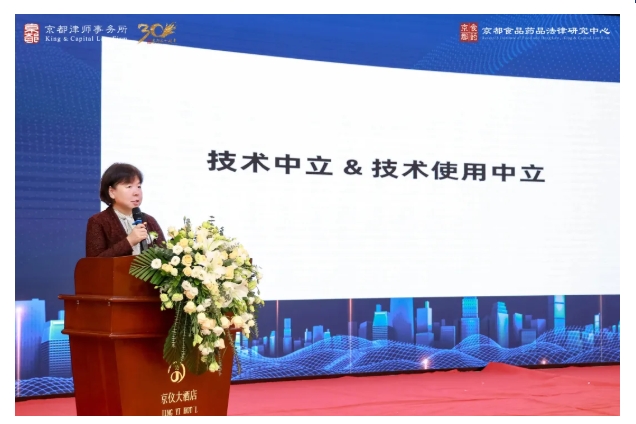
Liu Yunyun
Liu Yunyun, a professor at Beijing Technology and Business University and director of the Food and Drug Law Research Center, spoke on the topic of “Research on Algorithmic Recommendation and Platform Responsibility in the Perspective of Artificial Intelligence”. She believes that in the judicial field, the impact of new technologies on Internet service platforms, legal responsibility, and the identification of relevant technical measures and legal boundaries has been no small controversy. Such as algorithmic recommendation and the main responsibility, in the discussion should get rid of the anthropomorphic imagination, and look for the root of the problem, that is, who is controlling the algorithmic recommendation, who is implementing the recommendation behavior, and who is profiting from it. “The results and risk damage of algorithmic recommendation is not absolutely unforeseeable, uncontrollable and unavoidable”, for the small probability and small range of minor infringement damage existing in the platform, the right holder should have a certain degree of tolerance, for which the large probability and large range of serious infringement damage, the platform should do the corresponding duty of care, and take the For the high probability and wide range of serious infringement damages, the platform should fulfill the corresponding duty of care and take necessary measures to effectively deal with and avoid them, or it should bear the corresponding infringement responsibility.
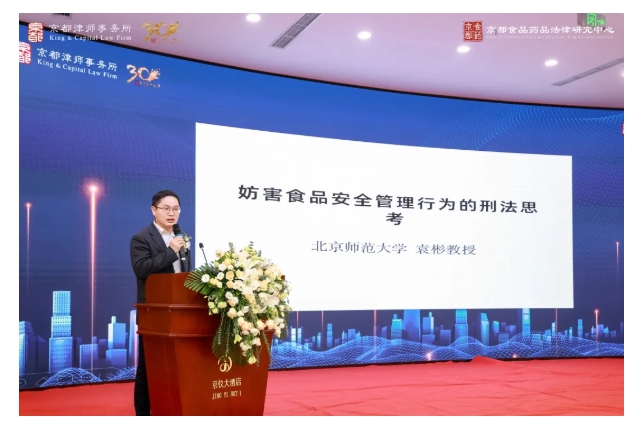
Yuan Bin
Yuan Bin, Professor and Doctoral Supervisor of Beijing Normal University, shared the topic of “Criminal Law Reflections on Obstructing Food Safety Management Behavior” on the issue of food safety. After combing through the cases, he found that some of the food safety cases exposed by the media over the years have problems with the food itself, which indeed does not meet the food safety standards, and is toxic and harmful, but more often than not, it is in the process of food production and management with process problems, and thus the crimes involving food safety are expanded in practice. Yuan Bin said, in the application of criminal law, whether to draw on the obstruction of drug management crimes, such as licensing issues, the protection of special foods and other issues for criminal consideration, can be further explored.
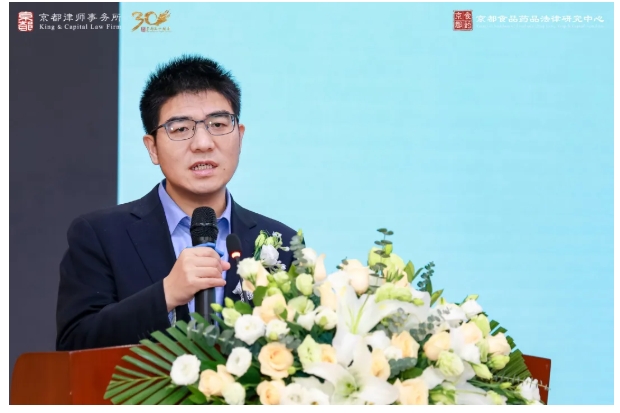
Zeng Wenyuan
Zeng Wenyuan, associate professor at the People's Public Security University of China and deputy director of the Food, Drug and Environmental Crime Research Center, focused on the issue of professional counterfeiters, which are often encountered in food safety production. He said that in recent years, the market supervision departments have received an increasing number of counterfeiting problems, and it is important to pay attention to the existence of knowledge of counterfeiting and buying counterfeiting behaviors beyond the scope of a reasonable life, and such professional counterfeiting usually will not easily litigate the court, will first go to the market supervision departments to complain and report, and then fight the lawsuit after obtaining the support of the market supervision departments. “The State Administration of Market Supervision in this year's new market supervision of administrative violations of the first non-punishable and minor exemption from punishment, cut off the professional counterfeiting through the market supervision department to achieve their own purposes. Protecting small and micro enterprises from excessive compensation or penalties for these tiny defective production and business behaviors is more conducive to stimulating market vitality.”
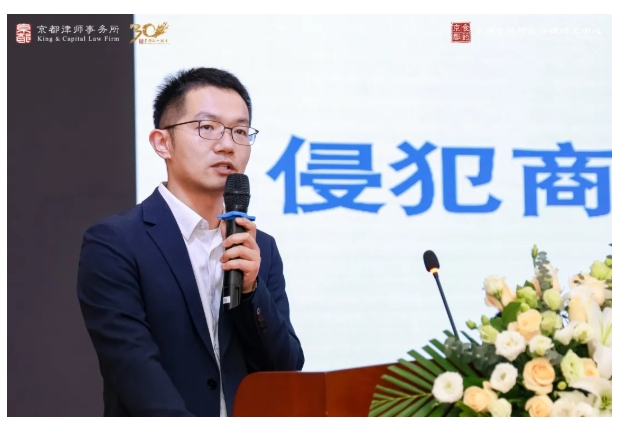
Sun Shuguang
Sun Shuguang, a master's tutor at the Law School of the People's Public Security University of China, discussed the key difficulties in criminal cases centering on the infringement of trade secrets. He introduced that the infringement includes obtaining trade secrets by improper means, violating obligations and the theory of infringing trade secrets, and in practice, it is also necessary to strictly determine the loss based on the specific behavior. At the same time, the general clause of confidentiality is not invalid of course, and its treatment needs to be combined with the comprehensive judgment of whether the infringer actually knows whether the information he touches or acquires is a trade secret, whether improper means are used, and the possibility of actual leakage of the relevant information.
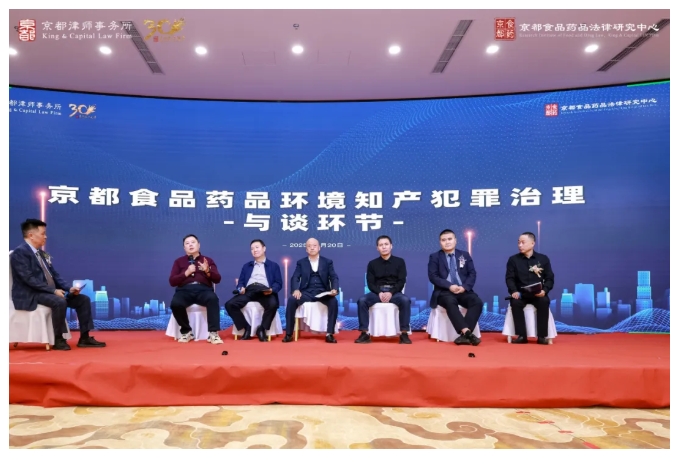
In the talk session, Zhou Lei, deputy director of Beijing Yinghe Law Firm, Zhang Xueming, vice president of Beijing Food and Drug Safety Rule of Law Research Association, Cao Chunfeng, senior partner of Inner Mongolia Shouzheng Law Firm, Li Jianping, director of the Supervisory Committee Room of a local discipline inspection commission, Yan Huainan, deputy director of King&Capital Food and Drug Law Research Center, and Zhang Qingjun, senior partner of Zhejiang Jingheng (Shanghai) Law Firm, went on stage and shared their views on issues of ringing the food and drug knowledge respectively. Shared.
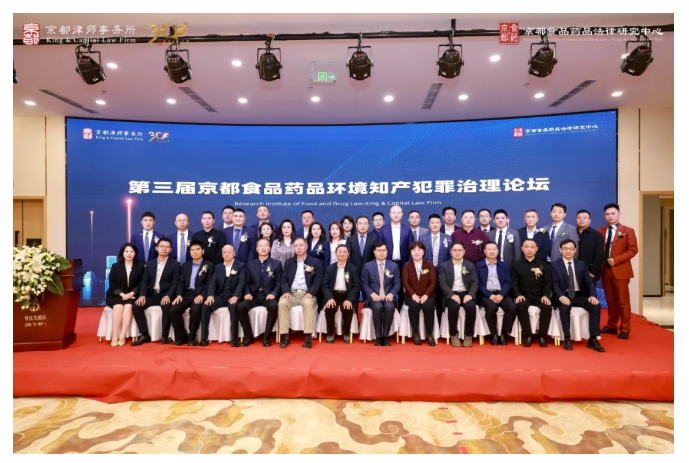
It is reported that this year is the 30th anniversary of the establishment of Beijing King&Capital Law Firm, the forum is also one of the 30th anniversary of the Kyoto Institute series of large-scale activities. King&Capital will also organize criminal, civil and commercial legal forums, and continue to combine the theory of the rule of law with practical phenomena to promote the industry and social change.



